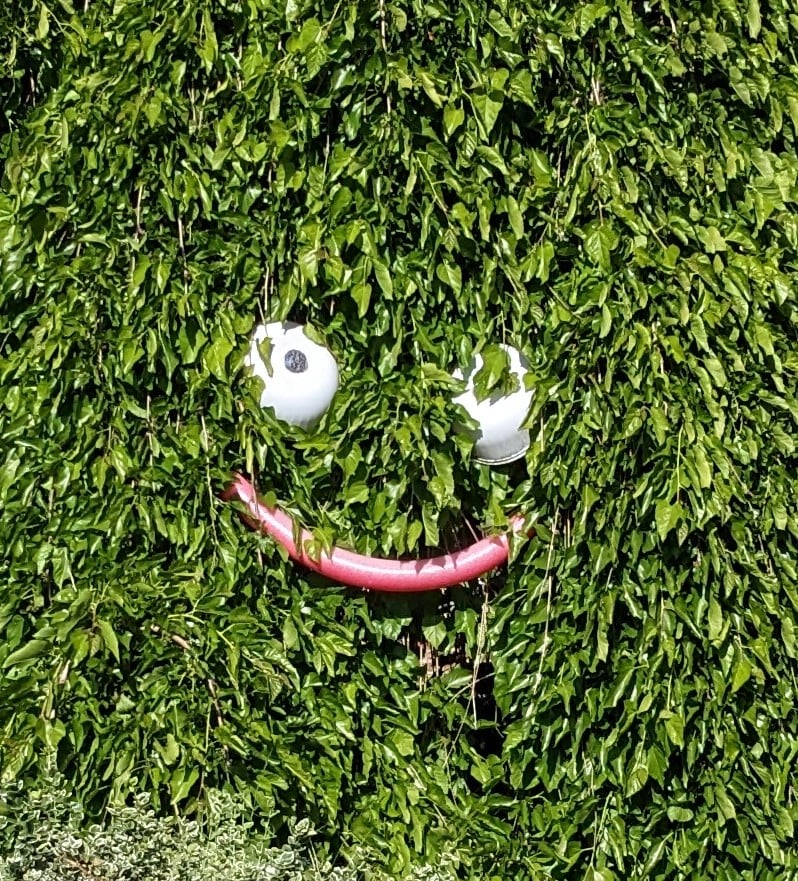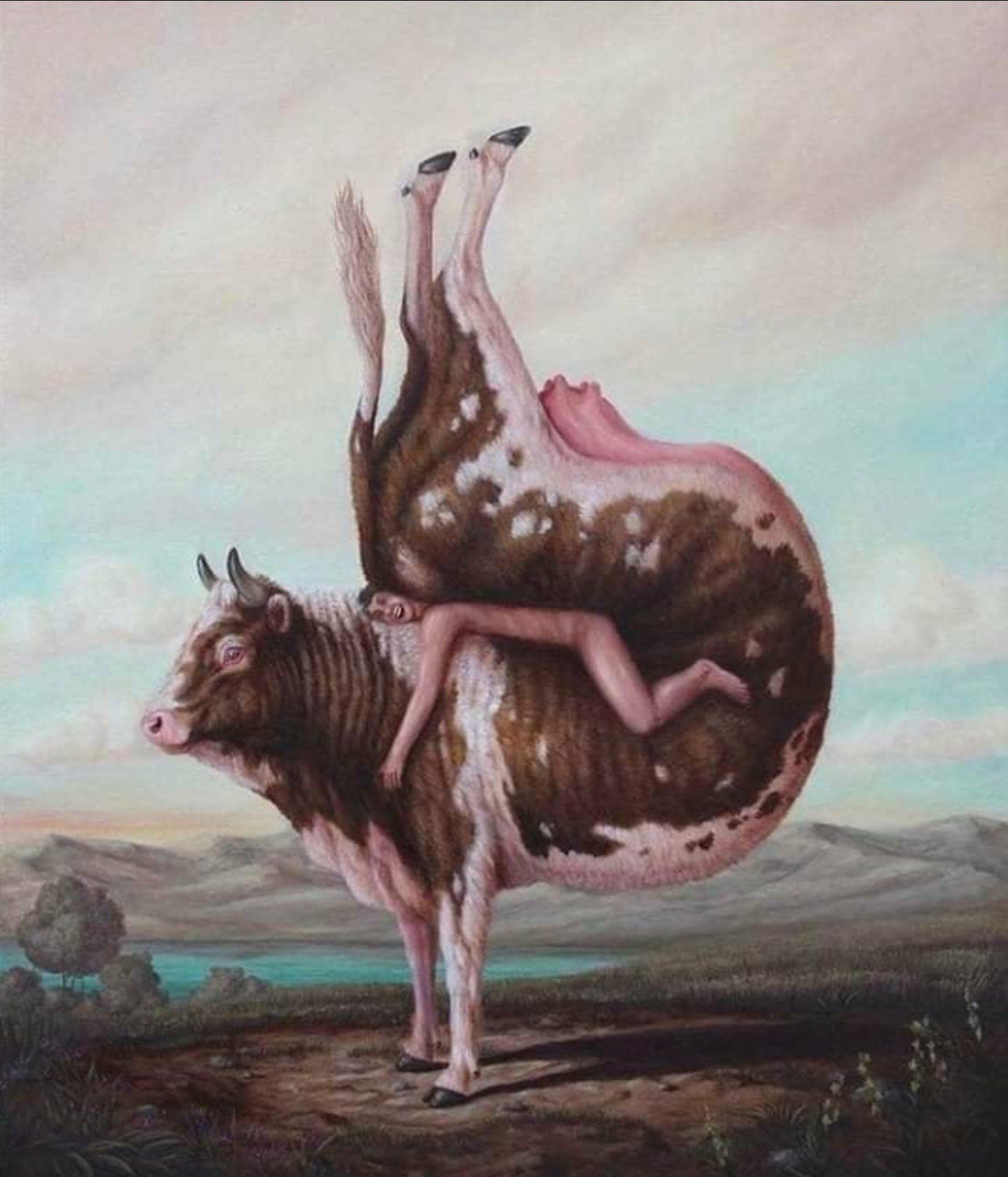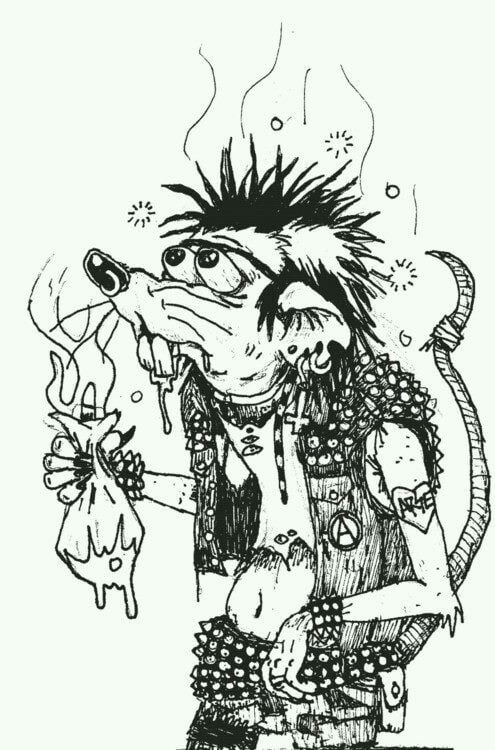- cross-posted to:
- [email protected]
- cross-posted to:
- [email protected]
This is a great illustration of the problem (biosphere collapse). Not optimal, but better than the usual ones.
Definitely not optimal with what seems to be the domestic cow as one of the cards at the top.
? It’s demonstrating the support of the staple foods being based on other species.
Beef is not a staple food, it’s a luxury and it’s destroying the climate.
You’re not wrong about the second half of your sentence, but it is quite common, unfortunately. Besides, I think the cow in the picture is meant to be representative for the entire meat industry, not just beef (other meats are still terrible for the climate, of course, just not as bad as beef).
WhY dO We NeEd bUgS?
💀
deleted by creator
Thinkimg about it, more humans is a terrible ecological effect as of current lifestyle and economics norms.
Mosquitoes specifically can all fuck off and die without anything really noticing. Anything that uses them as a food source has other options. They provide no net benefits in the way bees, spiders, worms, or basically anything else does.
The rest of the multi-legged realm is kind of really fucking important.
/u/MrZigZag thoughts?
deleted by creator
They food for other animals like fish, frogs, etc
Yes, I was trying to be sarcastic. I’m actually kind of an entomologist.
We need them but I’m not eating them
Why care if humans go extinct?
Even though things seem shitty now. I think that, on average, humanity’s story is one of self-improvement. This Good Place quote comes to mind:
What matters isn’t if people are good or bad. What matters is if they are trying to be better today than they were yesterday.
I think humanity is trying to be better today than it was yesterday. Human history is a story of more and more types of people being given more and more rights. Of slowly putting down our rocks and spears and guns and trying to live together. Of learning to care for nature while holding the power to destroy it. We’ve had backslides, but overall we’ve come a long way from the Apes we once were.
I think humanity deserves the chance to keep trying to better itself. I hope we get to the point where we are good enough to give ourselves that chance. As another scene from Good Place put it:
Come on dummy, faster.
I unironically agree with the premise.
Removed by mod
I will bite and answer seriously:
It will have no impact on others, and even it did, it would be minimal.
However, suicide rates sometimes spike when someone famous comits die and with that it hasn’t brought mankind cose to extinction.
So they’re just good little weapons from the elites wanting reduced humans?
Dafuq?
Removed by mod
I’m a follower, not a leader. You go first.
Tried some time ago, do not recommend.
Yeah sure, let me just launch the nukes that I don’t have in a second. Or I could release the *NEW* COVID-23 DS Pro Plus Black Edition… aww fuck I don’t have a lab either to create a lethal virus.
Sorry, can’t do at the moment.
Understandable, have a nice day
I’m kinda thankful that even if we kill ourselves off and most life on Earth, it’s almost certain that life will come back in full eventually. We’d have to do some real Earth -shattering stuff to prevent that.
🎶 That is how the world works, from A to Zebra to the worms in the dirt, that’s how it works 🎶
Honestly I wouldn’t miss mosquitoes (at least the ones that bite humans).
You wouldn’t directly no. Except it’s food for a lot of animals and would be a huge problem soon enough
Too bad it’s not turtles all the way down.
Can someone make the connection for me between mass insect die-off and civilizational collapse? Whenever I see this implied there’s research cited about why we should believe insects really are in trouble, but the rest of it is always handwaved. I looked it up and it seems like a large portion of crops do not actually require insect pollination. So wouldn’t that mean we would survive, albeit somewhat worse off, even if much of the ecosystem does not? Am I missing something here?
Every species is a food, resource, predator, or competitor for resources for another species, so a decline of one species can have ripple effects on many other species. I guess one example is that parasitic wasps keep caterpillars and aphid populations in check (caterpillars and aphids can cause huge crop losses).
I get that there are ripple effects, and that some of them might be unexpected, but I don’t see how it could translate into an apocalyptic scenario for human agriculture. If there was somehow an increase in the population of pest species, why wouldn’t variations on the techniques we already use for dealing with those (which mostly do not rely on other animals) ultimately work to handle it, at least enough to feed everyone?
Pesticides are becoming less effective; pests are becoming resistant to them resulting in reduced yields across the world. Many conventional farms are now starting to use integrated pest management which involves biological pest control (which involves using and creating habitats for beneficial organisms to control pests).
IDK, maybe civilization can figure out a way to survive during massive ecological collapses, but it would be hard, and we don’t have to.
Earth is currently experiencing a sixth mass extinction - 60 minutes
https://youtu.be/6TqhcZsxrPA
fuck the future generation, as long as i get mine… am i right? /s
The thing is when populations are near extinction they have been at low enough levels usually to see what the effects are of their extinction for a long time. Furthermore no complains about random tiny species of bacteria going extinct even though overall bacteria are extremely vital to ecosystems
deleted by creator
It gives me an idea for a didactic game.
there’s a great board game around the idea of building a functioning ecosystem called Cascadia
And since its creator is a software developer, there’s also a free and OpenSource online version of it.
Thank you, i will look it. Maybe could use with my students.
One exception: wasps. Those useless stupid motherfuckers can go extinct. Fuck’em.
But they’re pollinators…
Replace’m with bees or bumblebees. I like bumblebees. Buzzing around the place like they don’t care.
that’s… not how pollination works…
As I said above: I will not be reasoned with. This is personal.
Haha
If the Earth can’t survive with mosquitoes and wasps, if the entire fabric of life is based on these two pillars living then motherfuck it, let it all burn down. I’m with you.
This is the part of social networks i do not like, too much time wasted reading non sense like this.
Do you like tomatoes? https://ugaurbanag.com/tomato-hornworms-and-parasitic-wasps/
Oh, I will not listen to reason. This is personal.
Nope, even more reason to rid of those bastards
Don’t mistake my apathy for ignorance.
Well it’s either ignorance, stupidity or malevolence.









